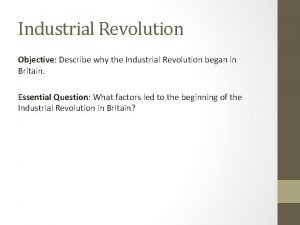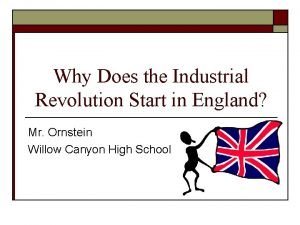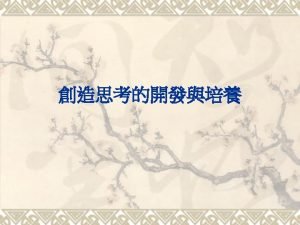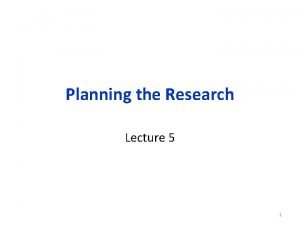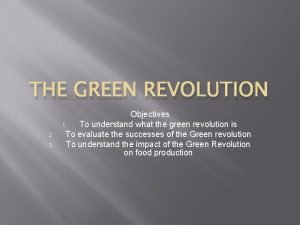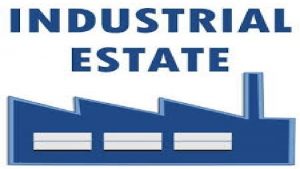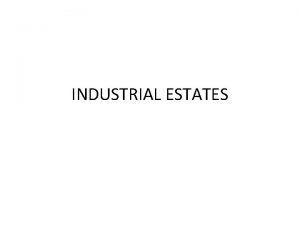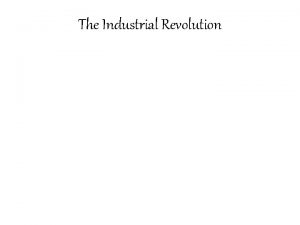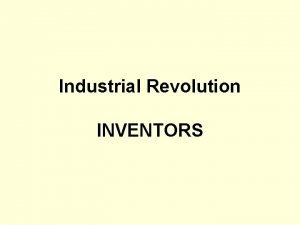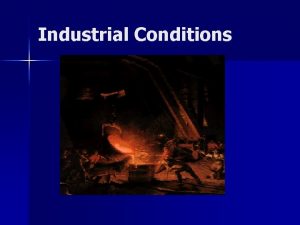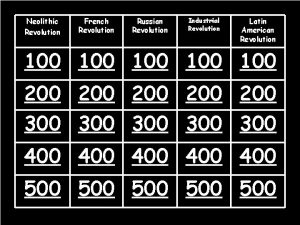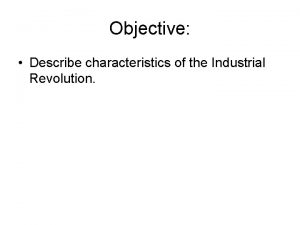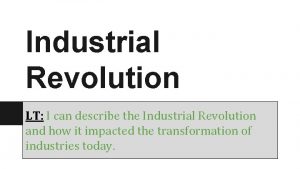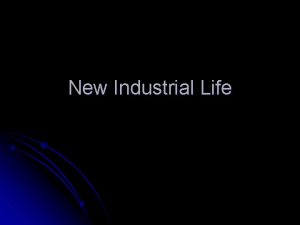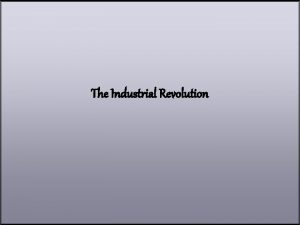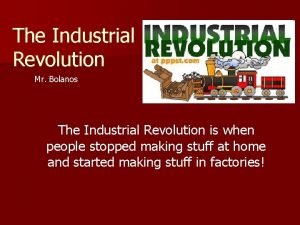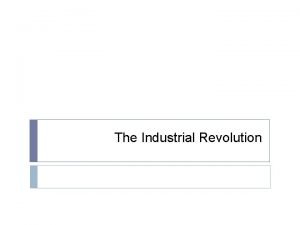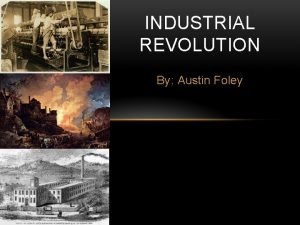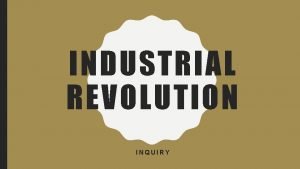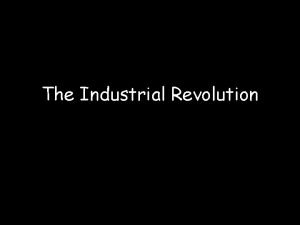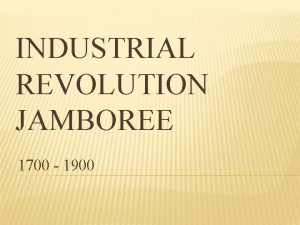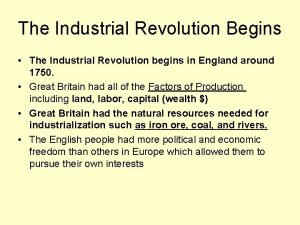Industrial Revolution Objective Describe why the Industrial Revolution

Industrial Revolution Objective: Describe why the Industrial Revolution began in Britain. Essential Question: What factors led to the beginning of the Industrial Revolution in Britain?

Life before the IR • • Relied solely on farming in small country villages Life is short and harsh Everything they had, they made Early industries – wool and cotton • Domestic system – produced in homes • Patriot Clip

Advantages/Disadvantages • With your group, write down the possible advantages and disadvantages of the domestic system • Consider: Work Load, Supervision, Amount of Production, Social Interaction

• What happens when the growing industry becomes too large for people to use their homes? ?

Industrial Revolution • The developments that changed rural, agricultural societies into city-centered and industrialized societies • ***Factory system – manufacturing goods in a central location

Factory life during the Industrial Revolution

The Factory System × Rigid schedule. × 12 -14 hour day. × Dangerous conditions. × Mind-numbing monotony.

. . more child labor

Young Coal Miners

Child Labor in the Mines Child “hurriers”

Workers on an assembly line

The New Industrial City

Early-19 c London by Gustave Dore

Worker Housing in Manchester


Modern Times Clip • http: //www. youtube. com/watch? v=CRe. DRHDYhk 8

Advantages/Disadvantages • With your group, write down some of the possible advantages and disadvantages of the factory system • Consider: Work Load, Supervision, Amount of Production, Social Interaction

Industrial Revolution • Great Britain leads the way – WHY? • Enclosure Movement – landowners fence off and take over lands, farmers must move to cities to find work • Landowners use new, more efficient farming methods • Mix soils, crop rotation, seed drill – agricultural revolution • Capital – people have more $ to invest in labor, machines, materials

IR • Natural resources • Water, iron, coal • Large labor supply – increase in population of workers • Farming = more food = longer lives • Entrepreneurs – business people set up industries • Political Stability – many wars but none on British soil, successful

Spread of Industry • GB tried to keep innovations a secret • France – many scientists • Slow paced, Napoleonic Wars, compensation • Germany – new factories, 1 st major railway, gov’t funding • U. S. – combined British $ and machinery with American mechanical skills • Had natural resources and large labor supply (immigrants)




Top 3 Most Industrialized Countries • Great Britain • Germany • U. S.

A New Society • Factory System (manufacturing goods in a central location, brought workers and machines under one roof) brought people to cities – URBANIZATION • Living conditions – poor housing, education, police protection, unpaved roads, disease rampant • Class tensions – IR created great wealth for the upper class and more of a gap

Objective: Describe how different schools of thoughts explain poverty and propose to solve it. Essential Question: What new schools of thoughts emerged as a result of the Industrial Revolution?

An Unequal Distribution of Wealth • Middle Class – skilled workers, factory owners, business people • Not just bankers, doctors, lawyers • Easier to change position in life • Lifestyle – men work, women at home • Working Class • As competition increased, work is harder, assigned more machines, must perform as fast as possible • Division of labor – assigned a specific task • Women and children work • 14 hr days/6 days a week, factories not well-lit or clean, no aid

“Working People of the World Unite!” Communism • Founders: Karl Marx and Friedrich Engels • Published 1848 pamphlet titled The Communist Manifesto • View of history: history is the story of class struggles (rich vs. poor, lord vs. serf, business owner vs. factory worker) • Anti-capitalism – the working class has primarily gained hardship and toil in the Industrial Revolution. • Business owners have too much power by controlling the factors of production: land, labor (workers) and capital (money/tools). • It is inevitable that the proletariat (working class) will overthrow the bourgeoisie (middle-class business owners) and establish a classless society. • Warm-up question: What would a classless society look like? (2 -3 sent. )

Other Schools of Thought • Capitalism (laissez-faire) • Described and supported by Adam Smith in The Wealth of Nations (1776) • Government should not interfere in the economy. Placing trust in the law of supply and demand will benefit everyone. Laissez-faire literally translates to “leave it alone. ” • Utilitarianism: Government’s job is to provide the greatest good for the greatest number of people. • Socialism: government should control a country’s means of production (land, labor, capital) • Similar to Communism, but less extreme • Labor Unions: groups of workers joining together to fight/bargain for better pay, hours and working conditions

A New Society (cont) • Unions – Late 1800 s • Organized labor groups representing the interests of workers in a specific industry • Improve wages and working conditions of members

Positive Effects • • Produce goods faster and cheaper Increased life expectancy (eventually) Increased education (eventually) New jobs Unions Technology Coal to heat homes, better food Better lives for some

Negative Effects • Widened gap b/w industrialized and non-industrialized countries • Imperialism – taking over other countries • Dependence on nonrenewable resources • Overcrowding, pollution, poor living conditions for the lower classes
- Slides: 32

